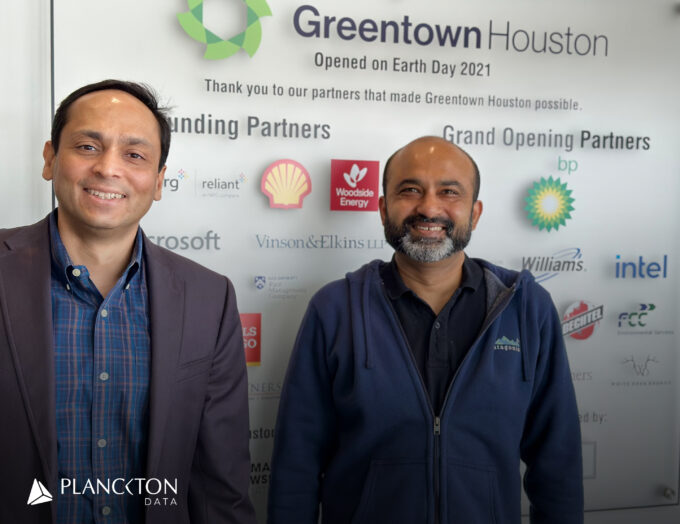Robin Goswami and Sandeep Roy have decades of experience in the energy, chemicals, and mining industries. A year ago, they founded a climatetech startup focused on helping asset-heavy companies understand and manage their carbon footprint, with the ultimate aim of achieving net-zero carbon emissions.
Planckton Data helps companies collect and analyze machine-level, real-time emissions data to create detailed carbon footprints and actionable pathways to emissions-reduction. It’s focused on asset-heavy—think chemical plants, refineries, oil rigs, liquified natural gas terminals—industries including energy, chemicals and refining, and mining and resources.
Goswami and Roy champion the expression “you can’t manage what you can’t measure,” but emphasize that measuring carbon emissions isn’t enough—that data has to be put to work. Today, large companies in Planckton Data’s target industries likely gather emissions data for reporting and compliance, but don’t leverage it for operational and financial decisions; additionally, the collected data is likely less granular than what’s needed for making data-driven decisions for decarbonization
“We really want to create action out of data,” says Roy, the startup’s Chief Digital Officer.
Another priority for Planckton Data is making the data interoperable. Today, data often can’t be easily shared and exchanged among different systems, departments, or organizations, and these interoperability issues can hinder collaboration and efficient decision-making. Planckton Data is working on this with an open-source consortium called the Open Footprint Forum and has developed its solutions utilizing the consortium’s data standards.
Roy and Goswami—formerly colleagues at Infosys—say their technology expertise and extensive backgrounds in energy, chemicals, and mining position them well to guide these industries’ first stages of the energy transition while prioritizing the “three-legged stool” of energy security, climate security, and economic security.
“The journey to net-zero has to be done very, very deliberately, coupled with strong action across the board,” Roy says. “Energy systems are deeply embedded into everything that we do; how do we make sure that we don’t break any of those three legs of the stool while we are going through the transition? That requires people who come from the domain to take action.”
Planckton Data has a five-person leadership team and a 20-person, globe-spanning engineering team. The startup has raised its initial funding and has deployed its solution with its first customer in the chemical industry. Goswami and Roy say their focus in the next year will be finetuning Planckton Data’s product-market fit and preparing to scale in 2024 and beyond.
Planckton Data joined Greentown Houston earlier this year, at the recommendation of an advisor. Its founders view many of Greentown’s partners as potential clients and have benefitted from fellow members’ energy-industry expertise.
“We’re very happy we’re part of Greentown Labs,” says Goswami, Planckton Data’s CEO. “You can read a lot on the internet, but actually talking to other co-founders gives you a lot more appreciation and understanding of what you’re really working toward.”


